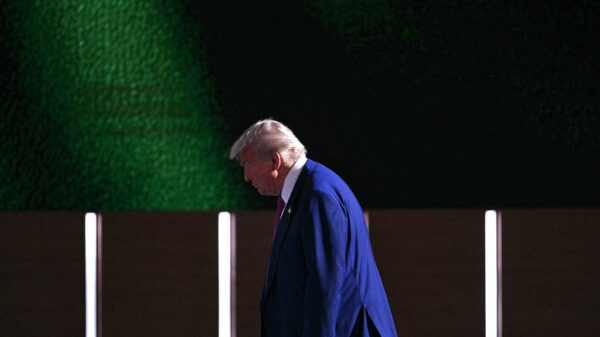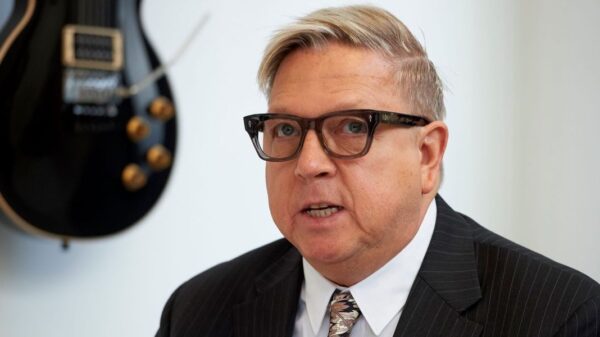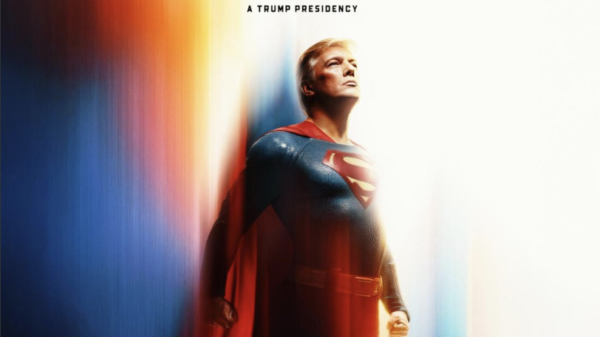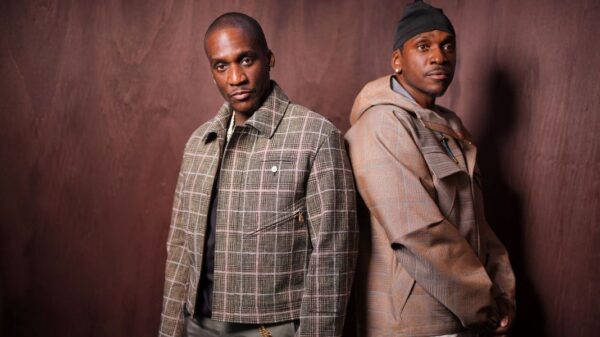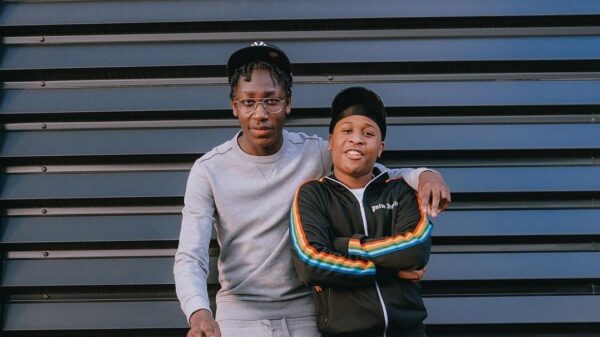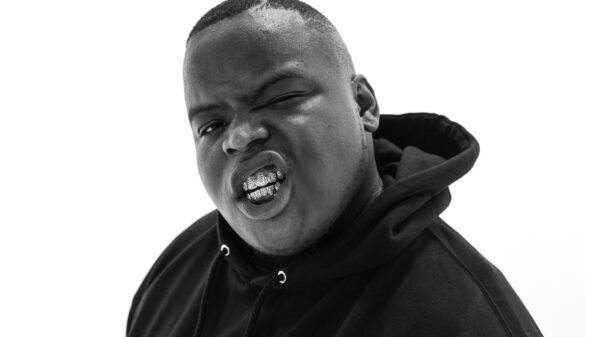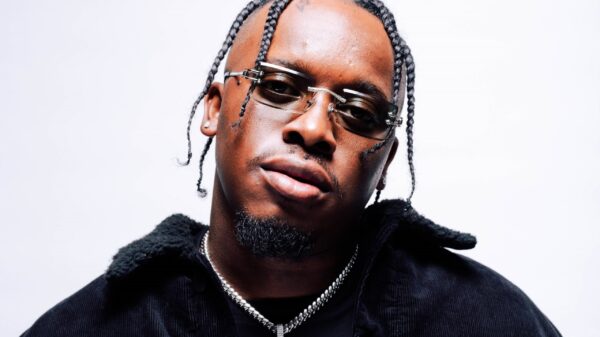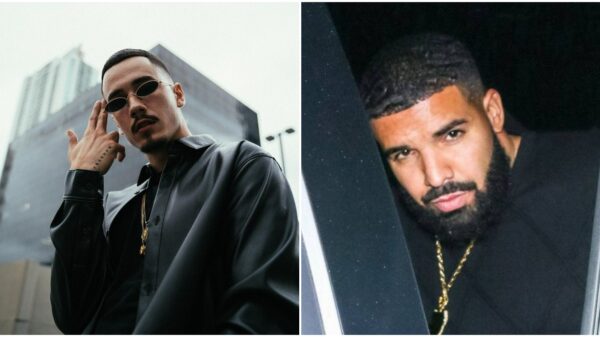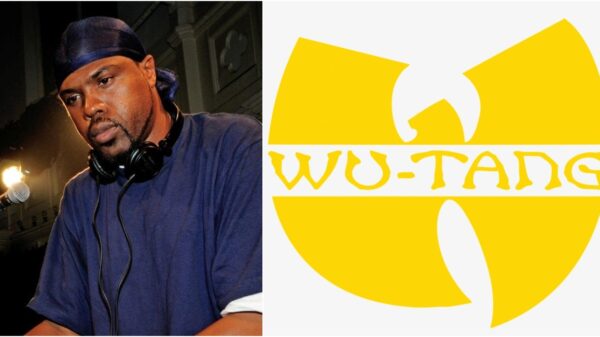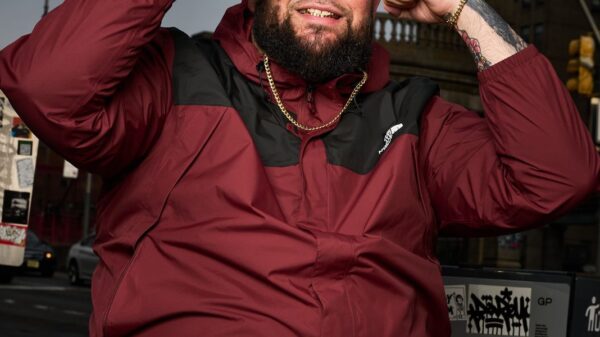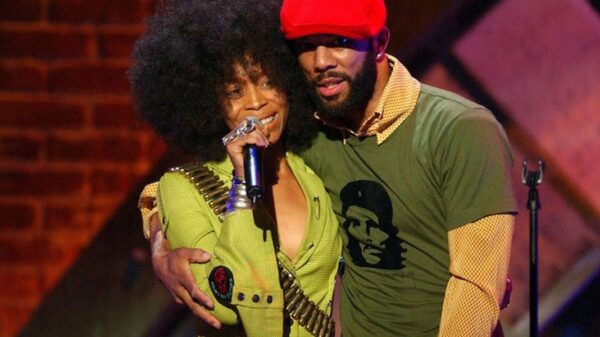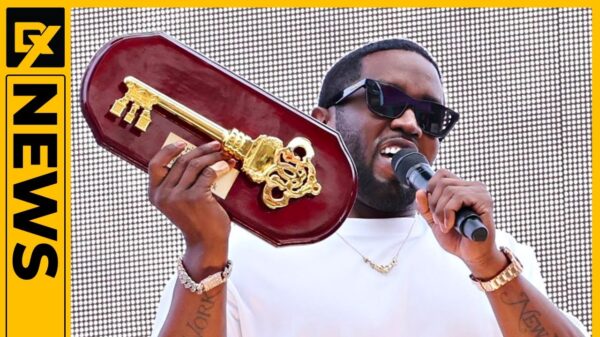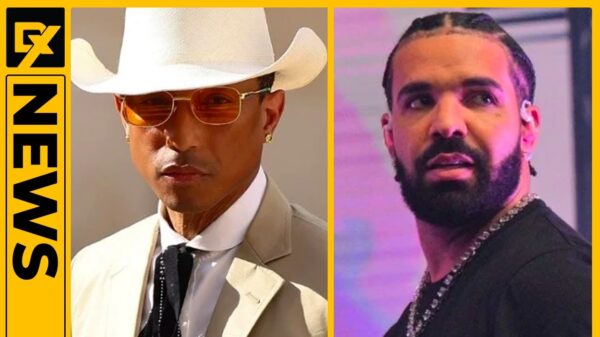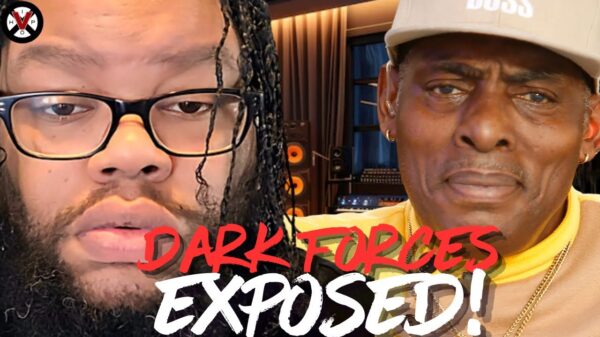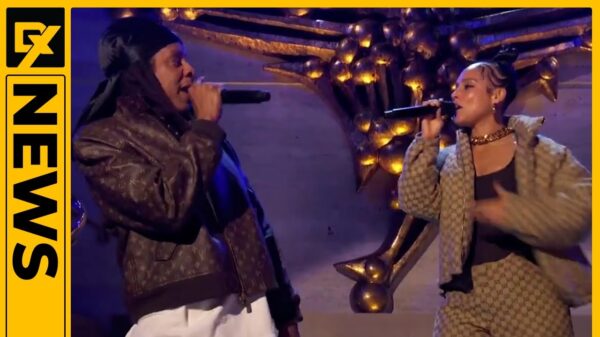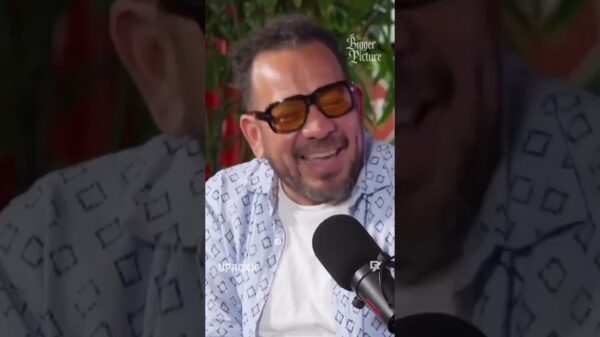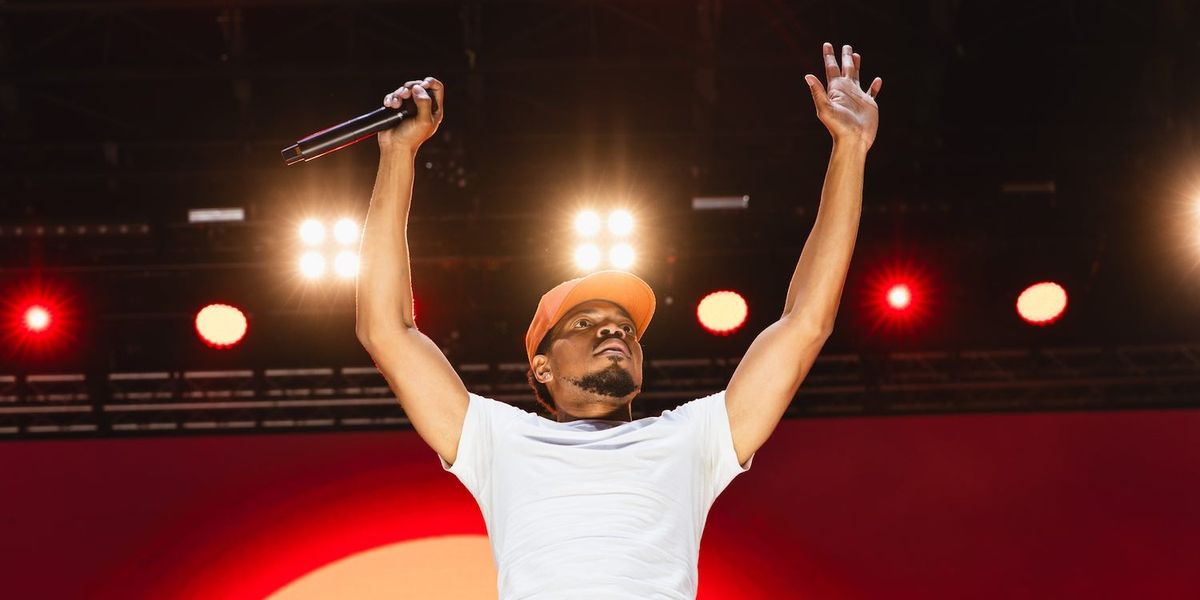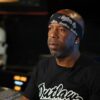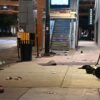August 19 was more than just another good, vibe-filled day of Summertime Chi. Chance the Rapper brought the whole city together at the United Center to celebrate the 10th anniversary of his groundbreaking third mixtape, Acid Rap. Greeted with complimentary Starry’s lemon-lime soda and all the free samples of Chance’s signature Ben & Jerry’s flavor (Mint Chocolate Chance) they could eat, close to 20,000 fans both new and old took to the historic stadium to see Chance perform the beloved project that turned him into one of the most beloved rappers from Chicago.
Chance’s homecoming Acid Rap show was one of the greatest displays of modern Chicago hip-hop ever. From Saba opening with favorites from The Bucket List Project and premiering brand new music produced by No I.D., to Chance, Twista, and Vic Mensa delivering a dazzling performance of “Cocoa Butter Kisses” and Noname surprising the crowd when she performed her feature on “Lost,” the show beautifully commemorated one of the most important movements in Chicago, honoring not just Chance but the fellow Chicago rappers he rose up with, too.
The performance was also a testament to how far Chance has come. As he shared in an interview with Okayplayer shortly after the show via Zoom, a highlight for him was his kids (who saw their dad perform on stage for the first time), mom, younger brother Taylor Bennett, and dad coming onstage to give him flowers after he ended his set with the emotional and cathartic “Everything’s Good,” which includes a touching voicemail from his father telling Chance how proud he is of him.
It was a full-circle moment that reflected how Ken Bennett had become his son’s greatest supporter. Initially, Bennett had kicked Chance out of their house because he didn’t have a job while trying to become a rapper. But after a traumatic incident that resulted in one of Chance’s friends being fatally stabbed occurred, Bennett came to his son’s aid, using his experience as a campaign manager and former deputy assistant to President Barack Obama to help Chance gain an organic fanbase throughout Chicago. Now, after giving his son the idea to go to schools and hand out CDs, have listening parties at streetwear store Leaders 1354, and start out on smaller local stages like Reggie’s Rock Club, here was Bennett watching his son perform a body of work loved by countless Chicagoans.
“To perform this song that I put out 10 years ago that changed all of our lives, and he came on stage with my kids and with flowers to tell me again how proud he was of me. That was one of the best moments of my life,” Chance said. “And whenever they make that Lifetime movie about me, I’m 100% sure that scene is gonna be in there.”
Ahead of his final show of the Acid Rap tour in Los Angeles at the Kia Forum, Okayplayer caught up with Chance to discuss the impact of Acid Rap, now classic Chance the Rapper songs like “Paranoia” and its significance to him, the bond between the core collective of rappers he grew up with who were all featured on the mixtape, and why he considers it “one of the best projects to ever be made not just in hip-hop but across any genre.”
This interview below has been edited and condensed for length and clarity.
Chance the Rapper headlines the Blue Note Napa Jazz Festival in Napa Valley, California. Photo by Ashleigh Reddy for Okayplayer.
One of the most important songs on Acid Rap is “Paranoia.” Using that song, could you give people an idea of what Chicago and the rap scene were like during that time?
Chance the Rapper: I was making Acid Rap in 2012, which was a crucial year for me and a lot of people because we were all a year out of high school. Chief Keef had just started to blow up. I think the “Don’t Like” remix came out that year with Ye on it, and there was this new, centered focus around Chicago and around violence. So, as much as it was an exciting new aesthetic for the rest of the world, it was becoming something more — first, I think it felt like a distorted reality, and then it just became reality. I think it wasn’t something new in terms of dealing with violence, like I have friends that have been killed and shit like that growing up. But it just became way more of a different understanding. Way more people just felt like they — for lack of better words to describe it — just needed a gun. Everybody had a gun all of a sudden. Before that, one person out of a group had a gun and that was basically everybody’s gun. That “No Lackin” shit was like a campaign. So, I started to understand or notice that more, and more of my friends were becoming paranoid. I wrote that song with the intention of putting a name and a face to this feeling.
Were you diagnosed with PTSD around this time?
I’ve never been diagnosed, but 2011 was when my homie Rod got killed in Chicago and I was there. I was in the fight and I witnessed the whole thing and I think from there, I was very changed. I’ve seen people get shot that I didn’t know, and I knew of people that had died that were my friends. But seeing somebody you know pass away is definitely a different vibe. And yeah, shit fucked me up.
Did making that song help you cope with that?
I think music is always a good way to name your problems and a great space to be vulnerable. Sometimes it does backfire though, listening to trauma over and over again. I have songs that I’ve made that were very analytical of my own life or have my own behaviors. By the 10th listen it’s like, “Damn.” I think it was helpful to me in that it gave me an opportunity to name a problem, and to address something to the nation and to a lot of people at that time who didn’t really know what was going on in Chicago, and had no space for people that were in Chicago to like feel like their thoughts or their reality was being addressed. I think it was helpful to a lot of people, but it is a crazy thing making sad songs because they don’t go away.
Paranoia (feat. Nosaj Thing) [Audio]www.youtube.com
And you had that line, “Somebody get Katie Couric in here.” What do you think about the way Chicago was being portrayed by mainstream media at the time?
You know what’s funny? Whenever I look at stuff like that I’m always like, “Wow, be careful what you wish for.” At that time, it wasn’t as prevalent a news story that Chicago was in crisis. That was something that came around more later in 2013, 2014, 2015, and then it’s been perpetuated through now. But the issue that we have with the news always focusing so much of their reporting on Chicago on the issue of violence, is that’s not how it was in 2012. Like, it felt like they were trying to cover something up. You remember that line from Boyz In The Hood? “They either don’t know, don’t show, or don’t care.” That’s how it used to feel. It used to feel like, “Damn, they’re steady talking about the Chicago that Barack Obama’s from.” The Chicago that’s working on trying to get to the Olympics. The Chicago that just put up a new skyscraper. But they’re not talking about the Chicago [where] this little girl just got killed in front of this house. So, at that time, that’s what the lyrics really were [about].
Acid Rap was my response to labels telling me that they would give me a non-physical, non-manufacturing deal. They weren’t keen on the idea of doing a streaming-only album. That, to them, didn’t make any sense because the music would never be consumed in that way. So, I put Acid Rap the way I put it out to show that it could be successful, and that was the new wave. Now, there really is no physical manufacturing or even individual sales of music anymore. Everything is streaming. I kind of wish it would go back to the old ways. You push for something and you can make something change, but that doesn’t mean that it was meant to change in that exact way. So, you just got to push to change it again.
Describe how you were feeling about this process when you were making Acid Rap, compared to how you feel now because you sound a little bit jaded.
To be honest, it was the same. I think I’ve always been a disrupter. To be in the position that I was in 2013, me not signing a record deal was a huge disruption. I mean, it even disrupted some other people that were going to sign from Chicago. Releasing a project at that time, on the heels of 10 Day and coming off tour with Childish Gambino, I could have dropped my debut album at that point. I didn’t want to because I felt like it might be a better disruption to see what I could do just off a mixtape, and I think I’m in that same boat right now.
How many festivals approached you that wanted the Acid Rap show specifically, but ultimately you turned down?
There were a few festivals that wanted the Acid Rap show, but I think that plays into what I’m trying to get away from. I don’t want somebody to go see Acid Rap performed in Seoul for the 10-year anniversary at a huge festival, where there are three other acts that are performing their regular set at the same time. I want people to have a dedicated space that they can go and be in their feels and be in their memories.
The Worst Guys (Feat. Chance The Rapper) – Childish Gambinowww.youtube.com
Speaking of Donald Glover, he appeared on “Favorite Song” and then you popped up on “Worst Guys.” What’s something that you cherish the most about that time working with Glover? Do y’all still keep in touch?
Yes, we still talk every once in a while. We talked way more back then because neither one of us had kids or anything. My favorite thing about that time was Donald was very careful with how he shepherded me, and I think that rubbed off on me in terms of how I work with other artists. I don’t remember Donald ever trying to sign me, which is something I can’t say about everybody that’s been a mentor or big brother to me in the industry. And he would give me really important advice. He told me to hire a business manager when I just started doing shows at five grand. I was getting paid less than that by him (laughs), but when I would do my own shows I was getting booked for around five grand, and he told me to go and get a business manager. He said it was the best investment he ever made, because it kept his money organized and kept his taxes paid.
And that’s just one specific instance. There’s so many times that he would just give me advice. Me and Donald, we have more of a mentor/mentee relationship. I’m about 10 years younger than Donald, so when he took me out on the road that was my first time ever buying a legal drink. He took me to Canada where the drinking age is 19. The first time doing so many things and it was all like this wide-eyed, 19-year-old kid. It’s my first time even really being away from home for that long without a parent. He was just very intentional about what he showed me and what he told me. So, now when I work with artists, obviously I don’t try to sign anybody because I don’t have a record label and I don’t believe in owning other people’s masters and stuff. But also, that’s just how you’re supposed to do it. That’s how the game is supposed to be played for us, for Black folks. We’re supposed to give each other the game and not try and take advantage of each other.
What is it about this core group of peers — Vic Mensa, Noname, Saba, and so many others — who were all on Acid Rap that made you all so collectively influential years later?
They’re so influential because these are once-in-a-lifetime generational talents. But also, we all grew up together. I knew Saba, Noname, and Vic since we were all about 14 years old. We all used to go to an afterschool program that did poetry workshops and open mics and stuff like that. When I was making Acid Rap, what’s funny was Noname wasn’t really rapping like that. That was her first feature. That was her first time getting on a track with me, and I didn’t even know her ability or take seriously her ability as a rapper until she did “Lost.” I think that’s such a deep thing that’s hard for me to even speak on in an interview, but we were all kids is what I’m really trying to get across. Nobody really knew how to do it — what to do, what we wanted to do. We were following our ambition and our hearts and it worked out. But I think the reason why the bond is so tight is not just because we’re talented, but because of how we grew up and the system that was put in place.
Just like how you were talking about Donald Glover and the way he was really intentional with his mentorship, the people that I was just naming all have a person in common. This guy named Mike Hawkins, Brother Mike, he’s a poet and rapper from Chicago. That was our mentor. His job every day after school was to come and sit and talk to us, and he made us do those open mics. It was just moments of training that made me say, “OK, I need to just walk around rehearsing my raps to myself all day,” or “I need to make sure that I’m not cupping the mic, I need to make sure that I’m introducing new pieces to the world, I need to make sure that I’m respecting my sisters in this space, I need to make sure I’m respecting myself and my brothers and sisters in this space.” We had this man telling us this shit that no one else was telling us. We all have different relations with each other, but I know that the thing that connects us is Brother Mike.

Were there any artists that didn’t make the cut for Acid Rap?
Yeah. Joey Badass wouldn’t get on “Everybody’s Something,” and I think he even had a whole verse for it. So, you know it’s a Slum Village sample. At the beginning of the song they say, “Niggas want to grip up the mic like it’s a dick.” Joey called me crying laughing like, “Yo, I can’t get on this song. I can’t get on this song with them saying that shit.” I’m like, “G, you don’t know Slum Village?” It was something that we laughed about. We still made “Wendy N Becky” together, he’s on my new album, Star Line, and we’ve done so many things together. That’s like one of my closest friends. But yeah, Joey was supposed to be on the mixtape.
Do you consider Acid Rap to be the blog era’s best mixtape? Why or why not?
I think it’s one of the best projects to ever be made not just in hip-hop but across any genre, based on its vulnerability, originality, staying power, and influence. So many artists that come and tell me that Acid Rap changed their lives, have changed a lot of people’s lives. There’s a lot of great music that came out in the early 2010s, but Acid Rap is a whole thing within itself.
__
Mark P. Braboy is the sentient form of your weirdest flex who just so happens to be a music journalist and photographer based on the South Side of Chicago. He’s been published in 10 of your favorite outlets, interviewed music legends and rookies alike, and is a proud alum of Jackson State University. Also stans for cannabis equity for Black and brown people and weed songs you’re sleeping on. Follow him @Shootyourmark.
Read the full article here

